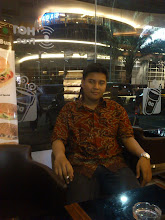A toxic and highly infectious new strain of E. coli bacteria has been wreaking havoc in Germany and fellow European nations over the last several weeks. Food poisoning cases have been reported Sweden, Spain, the Netherlands, Austria, Denmark, Norway and Switzerland, as well as the UK and Germany, and the culprit has finally been identified: bean sprouts.
According to the World Health Organization (WHO), German authorities stated that mounting epidemiological and food-chain evidence indicated that bean and seed sprouts (including fenugreek, mung beans, lentils, adzuki beans and alfalfa) are the vehicle of the outbreak in Germany.
Authorities are recommending that citizens and visitors in Germany should not eat raw bean and seed sprouts of any origin. Households, caterers and restaurants should dispose of any bean and seed sprouts that they have, and any food items that might have been in contact with them, until further notice.
Previous advisories to discontinue eating cucumbers, tomatoes and leafy salad greens have been rescinded.
Over 3,000 people have been sickened by this new strain of E. coli, and it is the cause of at least 31 deaths, primarily in Germany. The E. coil outbreak now ranks as the third-largest in recent world history.
Hospitalization has been necessary for many infected patients, with a number of them suffering from kidney complications that have required intensive care, including dialysis. The most serious effect of the infection is Haemolytic Uraemic Syndrome (HUS) that often leads to kidney failure, which can be fatal. This strain of E. coli is capable of attaching tightly to the wall of the intestines and producing toxins.
According to Paul Wigley of Britain’s University of Liverpool, “It is these toxins that cause damage to the gut leading to bloody diarrhea and may cause damage throughout the body.”





















0 komentar:
Posting Komentar